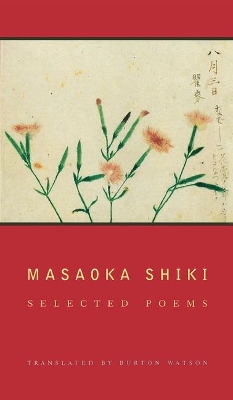Modern Asian Literature
1 total work
Here are graceful and timeless poems by one of Japan's greatest modern writers, rendered by a master translator. Masaoka Shiki (1867-1902) is credited with modernizing Japan's two traditional verse forms, haiku and tanka. Born at a time of social and cultural change in Japan, Shiki welcomed the new influences from the West and responded to them by reinvigorating the native haiku and tanka forms. He freed them from outdated conventions, made them viable for artistic expression in modern Japan, and paved the way for the haiku to become one of his nation's most influential cultural exports. Burton Watson's excellent introduction explores the course of Shiki's life: his poverty-stricken childhood, his early love for literature, his education, and his work as a haiku editor for the newspaper Nippon, and as a correspondent during the Sino-Japanese war. Watson details Shiki's long struggle with tuberculosis and its poignant expression in his poetry. Confined to bed for months before his death, Shiki continued to devote his energies to literary pursuits: writing poems and critical essays, and joining with friends and followers who gathered in his sickroom to discuss literature.
He died a few weeks before his thirty-fifth birthday. These poems-more than a hundred haiku, several tanka, and three kanshi-are arranged chronologically within each genre, revealing the development of Shiki's art and the seamless way in which he wove his life and illness into his poetry.
He died a few weeks before his thirty-fifth birthday. These poems-more than a hundred haiku, several tanka, and three kanshi-are arranged chronologically within each genre, revealing the development of Shiki's art and the seamless way in which he wove his life and illness into his poetry.
